Intercultural Trainings
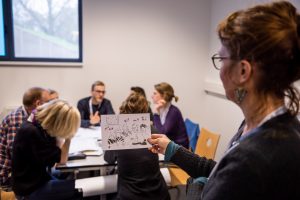 NovaTris courses put emphasis on the processes that occur during interactions between individuals and groups. Their objective is to enable the learner (student, teacher, employee, entrepreneur, etc.) to acquire and develop the intercultural skills and experience needed feel comfortable in an intercultural environment.
NovaTris courses put emphasis on the processes that occur during interactions between individuals and groups. Their objective is to enable the learner (student, teacher, employee, entrepreneur, etc.) to acquire and develop the intercultural skills and experience needed feel comfortable in an intercultural environment.
They guide learners towards independence, of both action and method, so learners can develop their skills on their own, beyond the course.
The work on analysis and knowledge focuses as much on others as on oneself: the learner develops their own intercultural skills individually, depending on their circumstances and their personality.
The intercultural and language courses are customisable. The location, duration, content and objectives will be confirmed, depending on demand. Courses may be delivered in French, German, English and/or Spanish.
More information on NovaTris Teaching Methodology
NovaTris Course Structure
The structure of a NovaTris education module may vary, depending on the educational needs and objectives. They are based on 5 types of complementary activities:
- Ice-breakers: enable participants to make initial contact and begin to build a climate of trust.
- Creation of random groups: helps to encourage new interactions, to participate in short, fun activities.
- Main activities: based on concrete experiences, the topics (related to interculturality) depend on the educational context and objectives.
- Formalisation: done collectively, in groups and/or individually, this helps to express the experience in words.
- Conceptualisation : based on formalisation, the experience can then be expressed as a problem and analysed to define its underlying concepts.
This structure can be enhanced with relevant theoretical contributions.
Examples of intercultural courses NovaTris
Students
Science Po Lille: Intercultural workshops
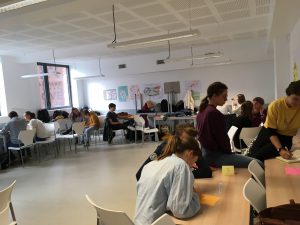
For 6 years, NovaTris has been offering a range of
intercultural workshops to help first year students integrate into the Franco-German dual degree at Sciences Po Lille.
These workshops aimed to improve students’ integration into the course and better prepare them for the sandwich course structure in Lille and Münster that is part of their course design. They encouraged students to think about the implications of a bi-national and bi-cultural university course, anticipating the benefits as well as the difficulties that may occur.
Through a combination of role-play and reflection, the NovaTris workshops provided strategies and tools to analyse and cope with these situations.
Young Researchers
Doctoral research and interculturality
NovaTris’ intercultural education for PhD students at the Doctoral College enables them to build and formalise the multidisciplinary skills needed to enhance their research and day-to-day life.
Through various role-playing exercises and reflection on real-life intercultural situations that they encounter during their course, PhD students are guided to see them in perspective and come to a better understanding of experiential learning mechanisms, in order to use them to their advantage.
The reflection component includes constructing the identity of the young researcher through intercultural contexts.
Transforming Academic Learning into Teachable Knowledge
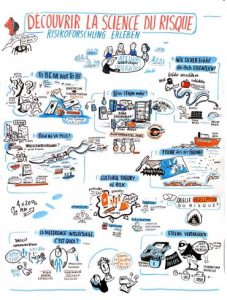
Within the framework of the Graduate Academy SERIOR Interreg project, NovaTris organised a full day dedicated to risk management in the Upper Rhine, in collaboration with the town of Saint-Louis. The aim of the event was to make this complex issue accessible to all audiences.
Within this framework, 8 PhD students from the 5 Eucor – The European Campus universities devised and ran interactive workshops for 2 Franco-Germano-Swiss secondary school classes. During a 2-day training course entitled “Transforming Academic Learning into Teachable Knowledge”, 2 teaching consultants from NovaTris assisted the 8 PhD students in developing the skills and tools needed to make their research topic more appealing to the general public, touching on risk in the broadest sense.
Each PhD student thus designed an interactive workshop, through which they passed on their academic knowledge to a young, non-specialist audience. This exercise enabled discussion about various research topics from an innovative perspective, and reflection on how to pass on knowledge in a fun, interactive way.
University Staff
Communication In Another's Language
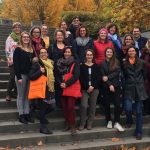 NovaTris Since 2017, NovaTris has been offering an intercultural course entitled “Communicating in Another’s Language”. This free course is open to all Campus university staff.
NovaTris Since 2017, NovaTris has been offering an intercultural course entitled “Communicating in Another’s Language”. This free course is open to all Campus university staff.
It is organised in partnership with the Université de Haute-Alsace Pôle ForCe Learning Center, the University of Freiburg im Breisgau Language School and the Language Centres at the University of Basel and the Karlsruhe Institute of Technology.
50% of participants are native German speakers and 50% native French speakers, which thus encourages interaction in both languages. It takes place over 5 days, divided into 3 sessions and alternates between the UHA, the University of Freiburg im Breisgau, the University of Basel and the Karlsruhe Institute of Technology.
The objective of “Communicating in Another’s Language” is to enrich real-life experiences through innovative approaches to learning. Participants learn from each other and acquire language and intercultural skills.
A variety of approaches are employed: intercultural awareness and support, assisted self-study language learning, tutored tandem exchanges, language learning through theatre, etc.
View the diary for dates of upcoming courses.
EPICUR Team building
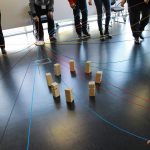
Within the framework of
EPICUR, the European University project,
NovaTris has had the pleasure of running a number of team building workshops for the International Team Building Kick-off. Designed and delivered in English by two teaching consultants from NovaTris, the aim of these workshops was to allow those involved in the project to get to know each other, and learn to work together.
The 29 participants, from the 8 partner universities in the EPICUR project, were meeting each other for the first time. The intercultural workshops delivered by NovaTris were therefore very valuable in building a good team.
Socio-Economic Contribution
European Institute For Energy Research (EIFER): Continuing Professional Development
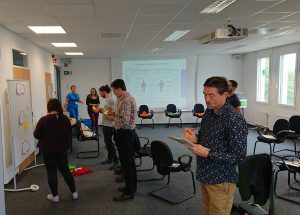
In September and October 2019, NovaTris worked with EIFER (
European Institute for Energy Research) in Karlsruhe. This Franco-German institute (a partnership between EDF [the French national electricity company] and the Land Baden-Württemberg) brings together people from all over the world.
In this context, NovaTris offered 3 CPD modules, covering Meeting Culture, Intercultural Communication for Management and Conflict Resolution. This joint undertaking came into being thanks to the networking endeavours of the Foundation Partenariale Haute-Alsace.
Participants had the opportunity to reflect on their day-to-day practices, in meetings or in the context of any conflicts, and consider how they communicate in these different situations, to identify good practices and how these can be developed/improved.
Direction des Affaires Culturelles Grand-Est (Grand-Est Directors of Cultural Affairs): Skills needed to develop cross-border projects
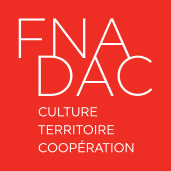
In the context of its inaugural
Study Day On Cross-border Cultural Cooperation and the National Conference of the FNADAC (National Federation of Associations of Regional Authorities’ Directors of Cultural Affairs), the DAC Grand-Est (Grand-Est Directors of Cultural Affairs) called upon NovaTris to organise and run
two think-tank workshops on the skills needed to set up cross-border projects.
The analysis of existing projects and the far-reaching thinking on potential future projects enabled the Directors of Cultural Affairs from different towns and cities to reach a better understanding of the complexity and implications of such projects.
What People Say
I think that, for Eucor – The European Campus, two things are important: firstly, breaking down the language barrier, and secondly, partnering up teams who are working on similar topics. This course tackles the language issue and I think it does so in a pragmatic way. I felt that the course accelerated learning by encouraging language practice with Speakers of Other Languages. This therefore led to cultural exchanges, built on good communication and learning practices. *
Michal Parusinski, Université de Strasbourg
Training Course « Communicating In Another's Language »
*These comments have been translated from French.
Photo credit : Victoria Harster
 NovaTris courses put emphasis on the processes that occur during interactions between individuals and groups. Their objective is to enable the learner (student, teacher, employee, entrepreneur, etc.) to acquire and develop the intercultural skills and experience needed feel comfortable in an intercultural environment.
NovaTris courses put emphasis on the processes that occur during interactions between individuals and groups. Their objective is to enable the learner (student, teacher, employee, entrepreneur, etc.) to acquire and develop the intercultural skills and experience needed feel comfortable in an intercultural environment.

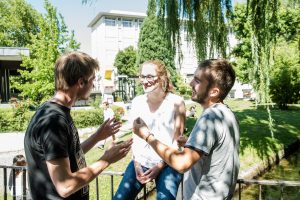




 In the context of its inaugural Study Day On Cross-border Cultural Cooperation and the National Conference of the FNADAC (
In the context of its inaugural Study Day On Cross-border Cultural Cooperation and the National Conference of the FNADAC (